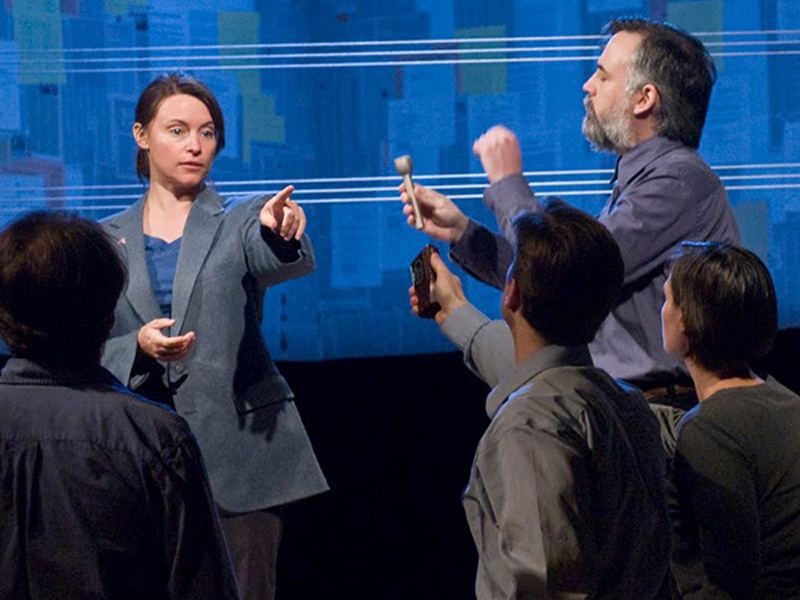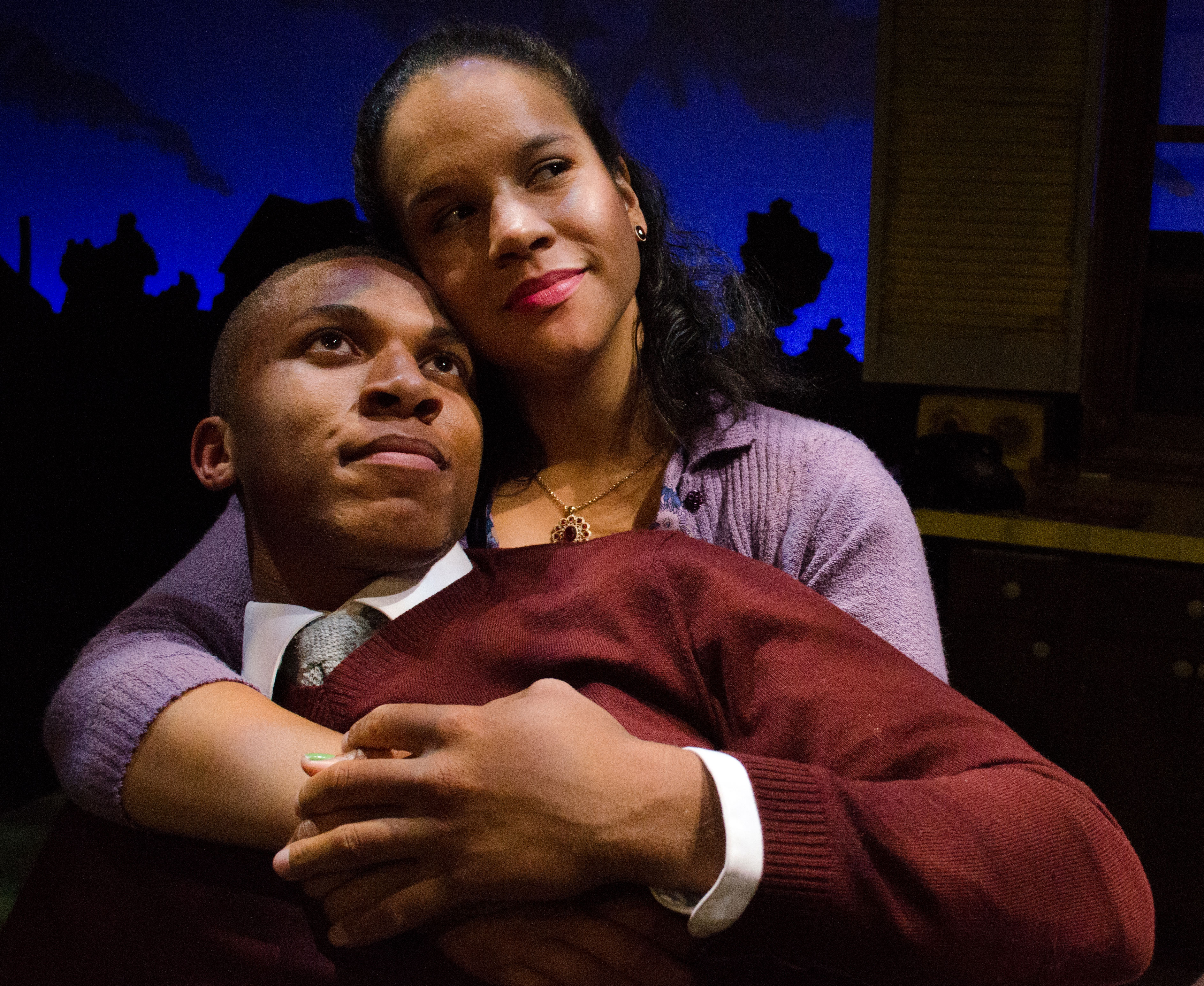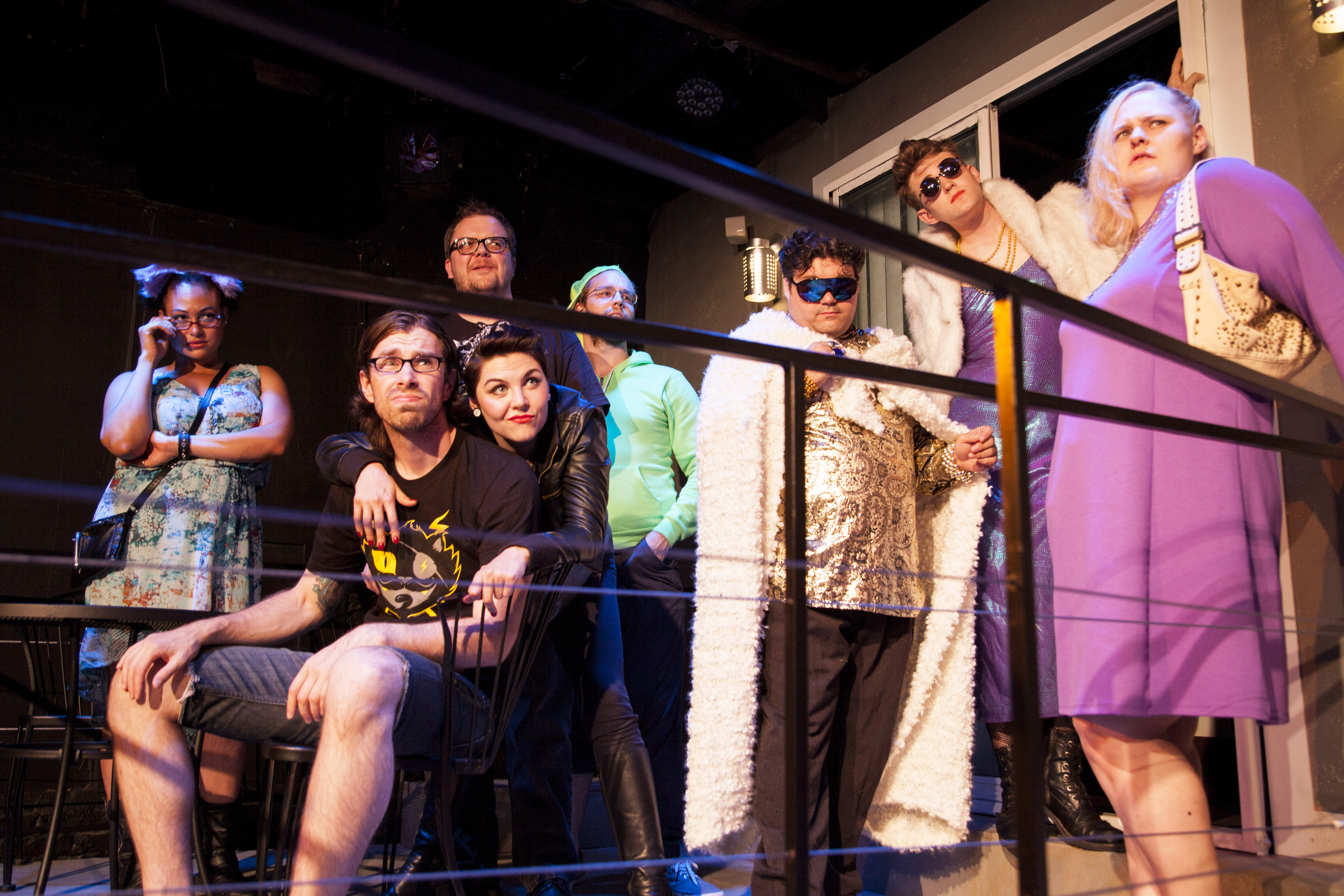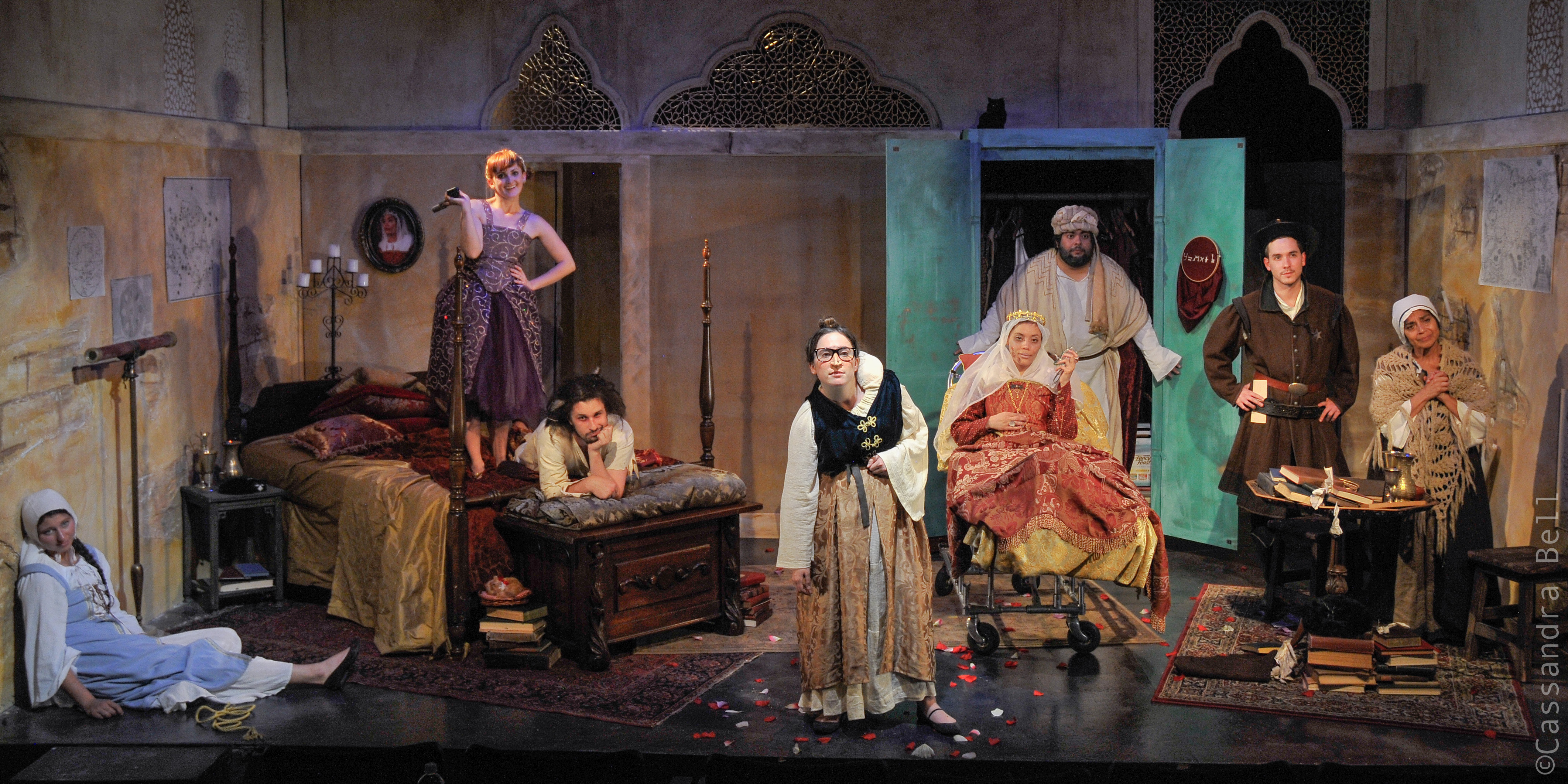When I was relocating my partner of eight years to Seattle in 2003, we deliberately filled his tank so we wouldn’t have to stop anywhere in rural Wyoming. Naturally, we ran out of gas near Laramie, where, five years earlier, college student Matthew Shepard had been queer-bashed and left to die on the prairie. We refueled with NASCAR precision and fervor, then got the hell out. It’s impossible for me to be dispassionate about the play and its well-known events, but Moisés Kaufman’s The Laramie Project works its awful magic because it’s ultimately more about people than issues.
First performed 10 years ago (and soon thereafter on HBO), The Laramie Project was developed from more than 200 interviews with Laramie locals—all conducted by New York’s Tectonic Theater Project. Those whose lives Shepard touched are quoted verbatim in the play. (No one portrays the hay-haired gayboy who was, by all accounts, far too far out of the closet for his own good at that time and place.)
The play telescopes in and out of events before and following the discovery of Shepard’s barely breathing body. The Laramie Project is at its core a crime story told as oral history by the witnesses who were there. There’s no speculation about whodunit, and Matthew’s death is neither depicted nor dwelled upon. It’s one statement of fact following another.
What’s so dramatic about that, you ask? Again—the people, how they view the crime, how they view themselves. A local Muslim college girl is incredulous when students stage a rally to show that “Laramie is really not like this.” “It happened here,” she says. “Of course it’s like this.” Elsewhere, a good, upstanding set of parents refuses to watch their son audition for a theater scholarship because he’s picked a scene from Angels in America. The cast of characters also includes Fred Phelps, the “God Hates Fags” Kansas preacher who picketed Shepard’s funeral. And we meet a sampling of progressive thinkers and clergy, gay and straight Laramie residents, and those who saw Shepard leave a bar with the two men who took his life.
There’s plenty here to make anyone dab an eye, but if you break down (and several viewers did), it’ll be when Galen Joseph Osier offers an abridged version of Shepard’s father’s courtroom statement at the sentencing of Aaron McKinney. “I would like nothing better than to see you die,” he begins, but then has a change of heart, asking for two consecutive life terms. “May you have a long life,” he says simply, “and may you thank Matthew every day for it.”
The sets are minimalist, and the staged interviews are augmented by period media reports and photos. Director Greg Carter’s small Strawberry Theatre Workshop ensemble unfussily shifts from one character to another. Carter largely lets the story tell itself, which today reads like history-as-forecast. In this age of birthers, Obama-as-Hitler signs, and toting guns to presidential speeches, white male anger at “the other” appears to be on the rise.








